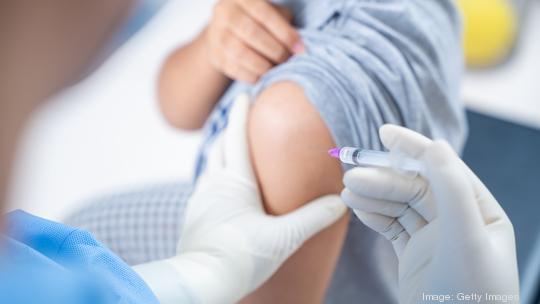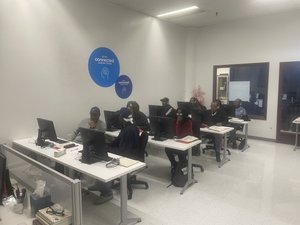
Omniose, a St. Louis startup focused on developing vaccines to prevent bacterial infections, has been awarded up to $3 million in federal funding to advance development of one of its vaccine targets.
It has been awarded a three-year, $3 million grant from the National Institute of Allergy and Infectious Diseases of the U.S. National Institutes of Health (NIH) for research and development on a vaccine for Group B Streptococcus (GBS), a bacteria that can severely affect newborns who are infected.
Omniose, which rebranded last year from VaxNewMo, has developed a technology platform it is using to create vaccines for GBS and Klebsiella pneumoniae.
“They’re really bad global actors and they’re resistant to antibiotics and really kind of consensus targets for a vaccine solution,” said CEO Timothy Cooke.
Omniose, which has six employees, has its research operations at the BioGenerator Labs in the BioSTL Building in the Cortex innovation district, 4340 Duncan Ave. Cooke said the startup will use its federal grant to advance development of a vaccine for GBS. GBS is known for its impact on newborns, with the U.S. Centers for Disease Control and Prevention saying it’s a “leading cause” of meningitis and bloodstream infections for newborns. The CDC says about 1 in 4 pregnant women have GBS bacteria in their body. GBS can also affect adults who aren’t pregnant, with those infected with the bacteria being at risk for bloodstream infections, pneumonia, and skin and bone infections, according to the CDC.
Cooke said Omniose will focus R&D efforts on providing vaccination against the 10 serotypes, or strains, of GBS. He said the firm has already published the effectiveness of its vaccine target in mice with GBS in three different strains.
“We’d like to work up to all 10,” Cooke said.
R&D efforts aim to position Omniose in the future to conduct a phase one clinical trial of a vaccine candidate in humans, Cooke said.
Omniose since its founding 2017 has had success luring federal funds to advance its vaccine development efforts. In 2022, it was awarded $3.6 million from the National Institute of Allergy and Infectious Diseases of the U.S. National Institutes of Health to advance its vaccine for Klebsiella pneumoniae. Cooke said the grants have given Omnoise enough capital to fund its operations for next couple years. He said the startup has continued to have discussions with investors and corporate partners to advance the company.
“There’s a lot of interest in new platforms to go after bacterial targets,” he said.











